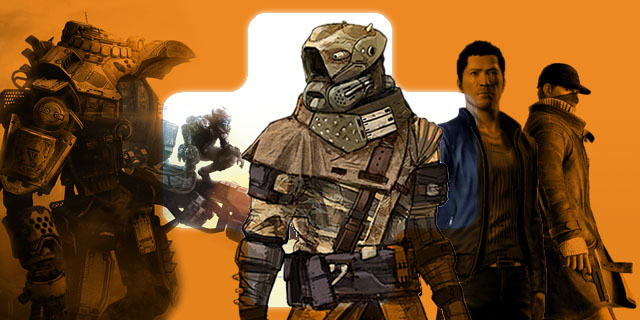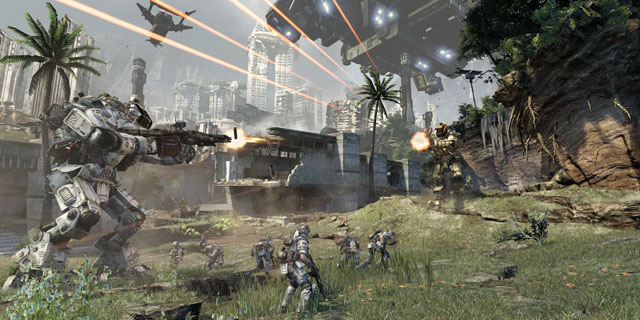
We’re slowly moving into an always-connected world. This is something many people seem to reject, yet the potential for some (though not all) games is exciting. People were quick to dismiss Microsoft’s policies for the Xbox One, especially pertaining to the daily check-in. It was for good reasons, mind you, as the benefits of such a system were unclear. That being said, with the potential of “the cloud” being something Microsoft (and arguably Sony) wants to push with the new hardware and many upcoming games seemingly focused on retaining always-online elements (or at least allowing for more beneficial online features), I find it all quite exciting.
If Microsoft actually stuck with its policies from the beginning, perhaps this time next year things would be different for the company and gaming as a whole. To me, they seemed like messy, yet necessary roadblocks to overcome before we get to a gaming future that is easier to accept. While the policy reversal may have set those plans back a bit, a large slate of upcoming next-generation games emphasize online connectivity as a main feature, with some requiring an always-online connection or at least hiding the best features behind it. Some may scoff at the idea, and sure, it is far from foolproof (this year’s SimCity launch proves that), but we will eventually reach the point when these things won’t be as problematic as they are today.

Let’s look at Bungie’s upcoming game, Destiny. It’s an online, MMO-inspired first-person shooter that seems similar to Halo in some respects, but it’s also very much its own thing. There is one thing people tend to forget though: this is a game that requires you to connect online to play. Sure, you can play the entire game solo, but like any MMO, you will be part of a persistent, online world with thousands of other players. Since the game is releasing on both current-gen and next-gen hardware, there are bound to be a few issues at launch, but if Destiny takes off, expect to see countless more games like it.
There will be skepticism, especially with a game this big launching on a multitude of different systems, but the potential is undeniably worth the possibility of a rough launch. Destiny seems like the kind of game that could get non-MMO fans into more traditional titles in the genre, one that is arguably dying out as of late. Plus, with it being a console-exclusive launch at first, it could do a lot for the future of online gaming on consoles. Even if the game itself isn’t on your radar, I think it will be worth paying attention to.
Look at the upcoming slate of launch games and see just how many have online components of some sort. Watch Dogs, Need for Speed: Rivals, The Crew, Titanfall, The Division, Forza Motorsport 5, Driveclub. Probably a few more I’m forgetting. Most of these you can play without a connection to the Internet, but would you want to? Developers are taking full advantage of systems with online connections to keep you up to date on what your friends are doing, and give them opportunities to connect to your game in potentially unique ways.

Those who wish to be completely isolated from those features have that opportunity, but I love the potential these games present. They aren’t the first to try ideas like this, but they are the initial wave of titles to really focus on a multiplayer experience that requires little effort on the part of the people playing. The multiplayer you know and love will always be available to you, but playing a game and having a friend randomly pop in to help or provide something new to the experience without any effort on the part of the player is something special. Not every game will use this functionality as well as we hope, but the possibilities are worthwhile.
Do I want every game I play in the future to implement these features? Of course not. There will always be experiences that are best had completely solo, disconnected from the online world at large. Even the most insignificant online features can grow into something different with the right developer, though, and lead the way to new possibilities.
We’ve already started seeing these in games released in the past year. Sleeping Dogs, like a handful of other, similar games, allows you to track your friends’ progress earning specific achievements or completing random, unrelated goals. Seeing those things pop up on my screen inspired me to do something I might otherwise never try just to beat their times or earn rewards faster than they did. It inspires a competitive nature even in single-player games. And if you don’t want to participate in that stuff, that’s okay. Little things like that add a new layer to a game that may not need it, but can benefit from it.

I look at a game like Titanfall and see what could be a seamless blend of single-player missions and competitive multiplayer. It’s been attempted before, but the team at Respawn seems to have the right idea of how to better fuse the two game types into something special. It could be the next big multiplayer game that shifts the popular shooter trend away from the Call of Duty model; that’s what excites me the most. A fusion of single-player and multiplayer experiences in general is a smart way to get people who typically avoid multiplayer to play, and while I don’t want every future shooter to follow in these footsteps exactly, there are many ways to combine the two without seemingly like a blatant copy.
I imagine both the PlayStation 4 and Xbox One will have various issues at launch, as all consoles tend to have, but I look at the slate of upcoming titles and see nothing but boundless potential for online connectivity. Sure, there will be countless bumps on the road to innovation, but isn’t that always the case?



















